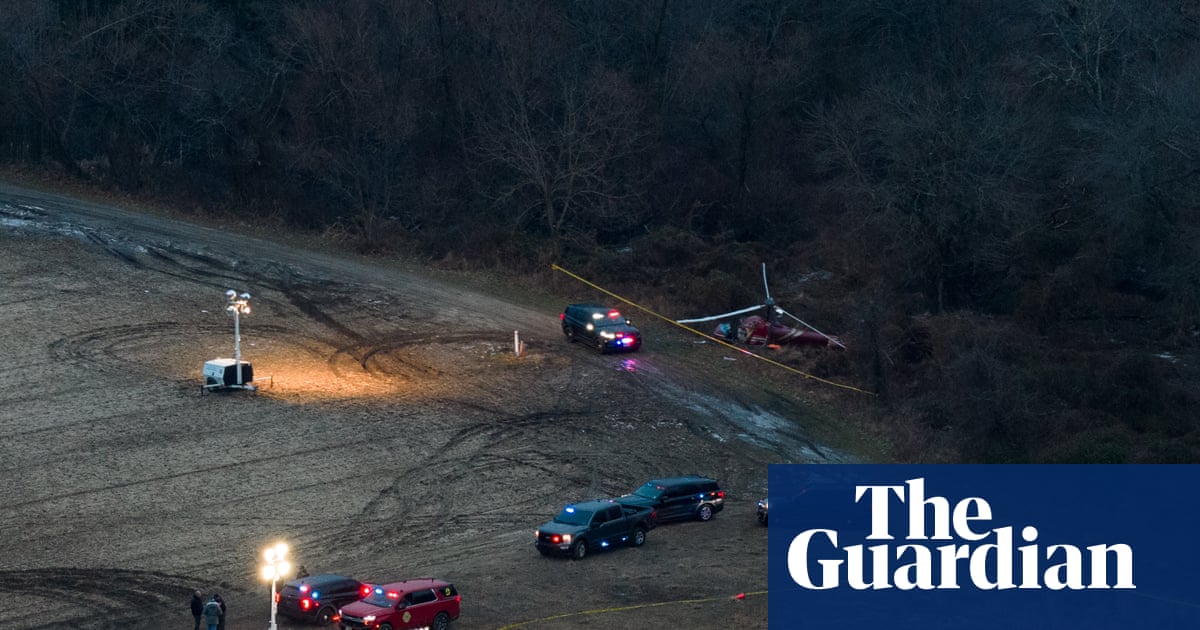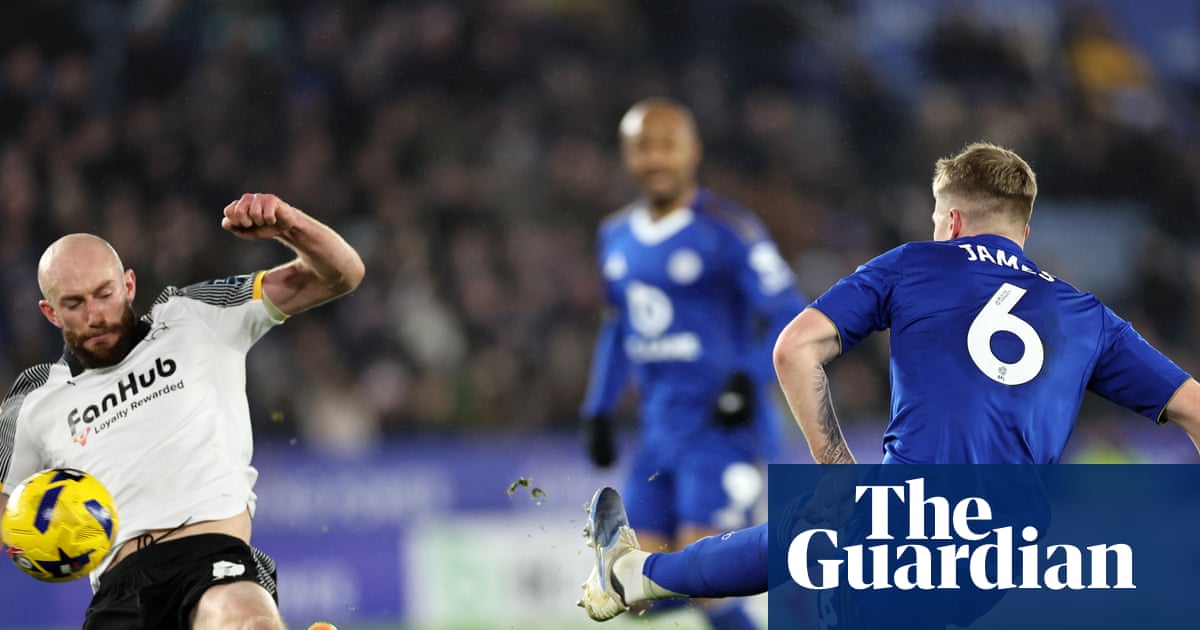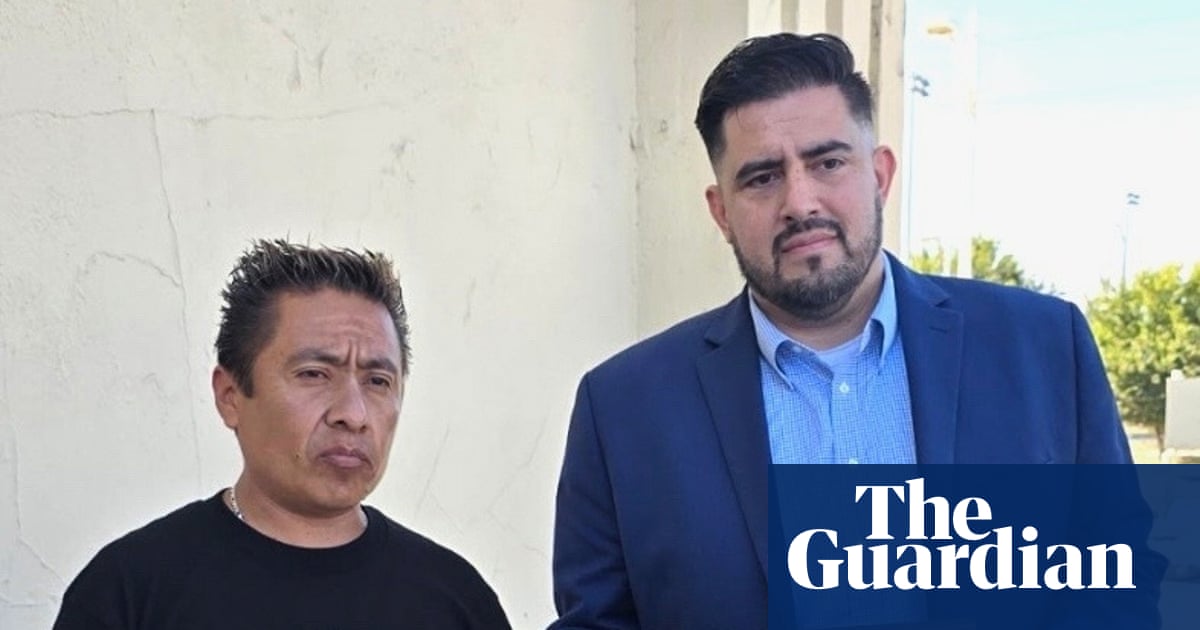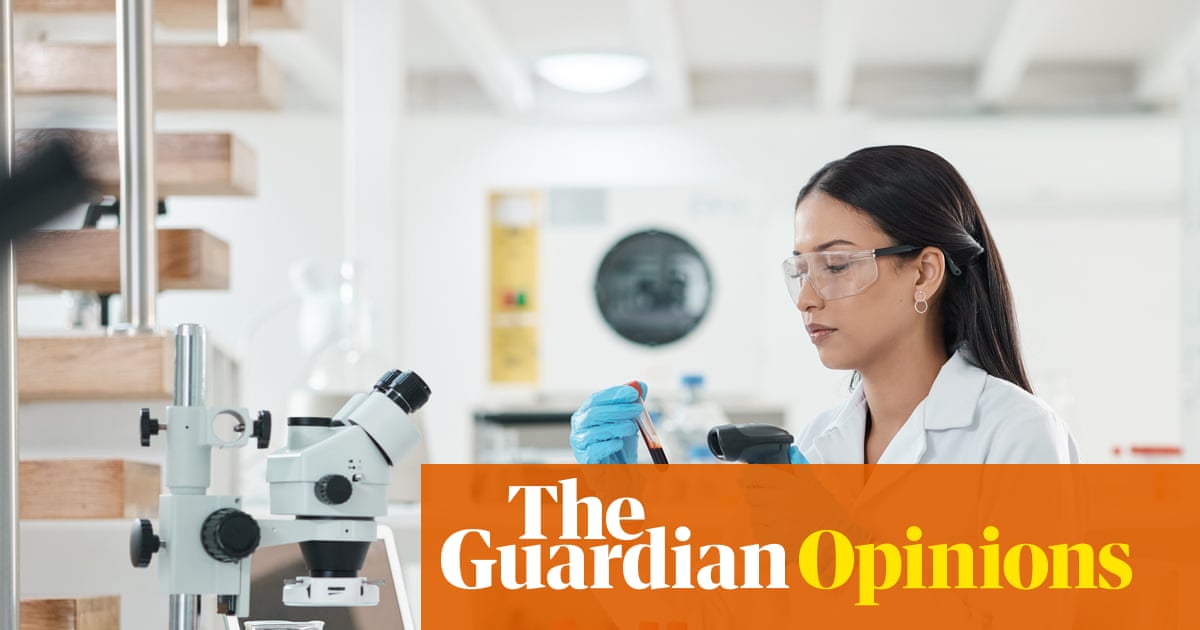There are times when Jay Spring believes he is “the greatest person on planet Earth”. The 22-year-old from Los Angeles is a diagnosed narcissist, and in his most grandiose moments, “it can get really delusional”, he says. “You are on cloud nine and you’re like, ‘Everyone’s going to know that I’m better than them … I’ll do great things for the world’.”
For Spring, these periods of self-aggrandisement are generally followed by a “crash”, when he feels emotional and embarrassed by his behaviour, and is particularly vulnerable to criticism from others. He came to suspect that he may have narcissistic personality disorder (NPD) after researching his symptoms online – and was eventually diagnosed by a professional. But he doesn’t think he would have accepted the diagnosis had he not already come to the conclusion on his own. “If you try to tell somebody that they have this disorder, they’ll probably deny it,” he says – especially if they experience feelings of superiority, as he does. “They’re in a delusional world that they made for themselves. And that world is like, I’m the greatest and nobody can question me.”
Though people have been labelled as narcissists for more than a century, it’s not always clear what is meant by the term. “Everyone calls everybody a narcissist,” says W Keith Campbell, psychology professor at the University of Georgia and a narcissism expert. The word is “used more than it should be” – but when it comes to a formal diagnosis, he believes many people hide it, as there is so much stigma around the disorder. A narcissist will tend to have “an inflated view of oneself”, “a lack of empathy”, and “a strategy of using people to bolster one’s self-esteem or social status through things like seeking admiration, displaying material goods, seeking power,” says Campbell. Those with NPD may be “extremely narcissistic”, to the point that “they’re not able to hold down stable relationships, it damages their jobs”, and they have a “distorted view of reality”, he says.
Though up to 75% of people diagnosed with narcissistic personality disorder are men, research from the University of London published last year suggests this figure does not mean there are fewer narcissistic women, but that female narcissism is more often presented in the covert form (also defined as vulnerable narcissism), which is less commonly diagnosed. “Men’s narcissism tends to be a bit more accepted, just kind of like everything in society,” says Atlanta-based Kaelah Oberdorf, 23, who posts about her NPD and borderline personality disorder (BPD) diagnoses on TikTok. It is not uncommon to see the two disorders co-occur.
“I really struggle with handling criticism and rejection,” says Oberdorf , “because if I hear that the problem is me, I either go into defence mode or I completely shut down.” Despite having this response – which is sometimes referred to as “narcissistic injury”, she has been trying to overcome it and take advice from her loved ones, as she doesn’t want to slip into the harmful behaviour of her past. “I was very emotionally abusive to my partners as a teenager,” she says. Through dialectical behavioural therapy, she has been able to mitigate her NPD symptoms, and she says she and her current boyfriend “have a dynamic where I told him, ‘If I say something messed up, if I say something manipulative, call it out right then and there’.”
Oberdorf grew up primarily in the care of her father and says she lacked positive role models as a child. “I’ve been learning all this time what is and is not appropriate to say during a fight because I never had that growing up,” she says. “Nothing was off-limits when my family members were insulting me when I was growing up.”
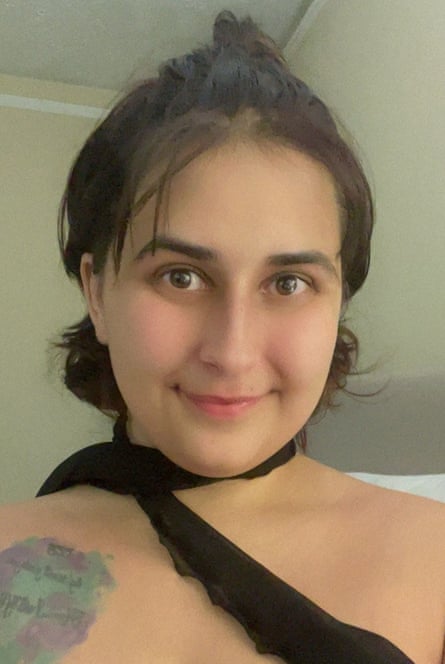
Personality disorders tend to be associated with difficulties as a child. “There is a genetic component,” says Tennyson Lee, an NHS consultant psychiatrist who works at the DeanCross personality disorder service in London. But, when someone develops narcissistic traits, it is often “linked to that individual’s particular early environment”. Those traits were “their strategy in some ways to survive at a very early age”, he adds, when they may have been neglected, or only shown love that was conditional on meeting certain expectations. They then “continue to use those same mechanisms as adults”.
Like several of the NPD-diagnosed people I speak to, John (not his real name) thinks his parents “may be narcissists themselves”. The 38-year-old from Leeds says when he was a child, “everything was all about them and their work and their social life. So it was like, stay out of our way.” When their focus was on him, it came in the form of “a great amount of pressure” to achieve good grades and career success, he says, which made him feel that if he didn’t meet their standards, he wasn’t “good enough”.
When he became an adult, none of his relationships ever worked out,. “I’ve never cared about anyone really,” he says. “So I’ve never taken relationships seriously.” He didn’t think he was capable of loving someone, until he met his current partner of three years, who is diagnosed with BPD, so, like him, struggles with emotional regulation. She is “really understanding of the stuff that goes on in my head”, he says – it was actually she who first suspected he might have NPD.
After a visit to his GP, John was referred to a clinical psychologist for an assessment and was told his diagnosis. He has been referred for talking therapy on the NHS (a long period of therapy is the only treatment that has been shown to help NPD patients, says Lee), but has been on the waiting list for a year and a half: “They said it is probably going to be maybe February or March next year.”
John has only told a handful of people about his NPD diagnosis, because “there’s a big stigma that all narcissists are abusers”, but, privately, he has accepted it. “It helps me to understand myself better, which is always a good thing,” he says. All of the people I speak to have accepted their narcissism and are seeking help for it – hence being willing to talk about it – which is probably not representative of all people with the disorder. But the existence of NPD content creators such as Oberdorf and Lee Hammock, and the growth of online support communities, suggest that more narcissists are openly acknowledging the issues they face – and the ones they may be causing for others.
“Seeing that you’re not alone in what you’re struggling with, being able to talk to other people who relate to you and maybe hearing coping mechanisms” are reasons why reddit user Phteven_j (who would like to remain anonymous) started joining in conversations about NPD online. Now a moderator of the r/NPD subreddit, the 37-year-old software engineer thinks he and his co-moderators are “pretty good about not encouraging disordered behaviour” and ensuring “it’s not a breeding ground for any sort of negative or disorder behaviour and more of a place where you can try to improve”.

Although, in volunteering as a moderator, “I’d be lying if I said that I wasn’t seeking out some kind of position of authority” – which arguably stems from NPD symptoms – Phteven_j believes the subreddit is largely a force for good. However, the slew of reddit users wanting to complain about narcissists (and sometimes even the existence of a subreddit that acts as a support group for them) “is constant” he says. Across the internet, narcissists are often “painted as almost like supervillains” and the stories shared are often from the perspective of those who have been abused by someone they believe to be a narcissist. “The advice is, typically, the same: run away, you’ve got to leave them, don’t ever talk to them again,” the moderator says.
Oberdorf is also critical of the way narcissism is discussed online. Social media users have accused her of “bragging” about her personality disorders because she lists them on her profiles and discusses them in her content. “I’m not bragging about the fact that I have debilitating mental illness,” she says. “I am proud of the fact that I have survived with mental illnesses that statistically could have taken my life.” She is keen to open up more conversations about NPD – “stigma is the number one worst thing for any illness ever”.

In this age of selfies and thirst traps, it can feel that narcissism must be on the rise. But just because there are now more outlets for narcissistic behaviour, prevalence of the clinical condition doesn’t seem to be increasing, says Lee. It’s worth noting, Campbell adds, that “social media is making people feel worse about themselves”, and, for most people, “it doesn’t make them feel positive about themselves or think they’re awesome”.
The way NPD diagnoses are made is “suboptimal”, however, according to Lee. Most of the research on NPD has been done in the US, where a paper published by the American Psychiatric Association estimates the disorder is found in 1%–2% of the population. “If you make the diagnosis, then it’s made on the [American Psychiatric Association’s] Diagnostic and Statistical Manual of Mental Disorders, Fifth Edition (DSM-5) guidelines, where it only captures an aspect of narcissism, which is the more overt, sort of aggressive type of narcissism, but it doesn’t capture the more covert or sensitive form,” says Lee.
There are two most commonly talked about types of narcissism. The first is the “grandiose” or “overt” form, which manifests in stereotypically narcissistic behaviours such as aggression and attention-seeking. The second is a “vulnerable” or “covert” narcissist, which is “the kind of individual the clinician might miss, because they often come across as far more contained, even self-effacing at times”, Lee says. Grandiose and vulnerable narcissism “are different sides of the same coin”, he says. Both types will have an inflated sense of their own importance, but for a covert narcissist that may mean a hypersensitivity to criticism or a victim mentality rather than a desire to put themselves in the spotlight.
Campbell points out that there is a risk of narcissists “using social media to maintain their narcissism”, as it can be a tool “to get favourable attention or positive feedback”, but does see the benefit of positive role models and support for people with NPD. When a celebrity, such as the American comedian Nick Cannon in 2024, “comes out with NPD and says it’s causing me problems, that’s a great message,” says Campbell, “that’s a great message”.
Lee, too, is wary of social media being used to educate or as a support system for people with NPD, “because there’s so much misinformation”. But he believes “more structured” information is missing, particularly in the NHS. “The service for narcissistic individuals is very uneven throughout the UK” and “many clinicians don’t make the diagnosis of narcissism”, Lee says, partly because they aren’t primed to notice it, and partly out of reluctance to make a diagnosis that is perceived so negatively. The symptoms of NPD also mean that “if a narcissist is successfully leading their life, even though they might have quite a strong level of narcissism, they’re not going to seek treatment”. When a patient with NPD does seek help, it is often because they have suffered negative consequences of their narcissistic behaviour, or a partner or family member has encouraged them.
Spring wishes people would reframe the way they think about narcissists. “A narcissist is attempting to believe that they are the best because that is the coping mechanism for feeling like: ‘I am the worst,’” he says. “There’s something missing with me and I need to be in this fantasy world where I’m the hero because maybe in my childhood I was the villain and now I need to overcompensate for that.”
NPD is clearly a condition that requires psychological help, but Oberdorf can understand why narcissists don’t seek it: “If you have a problem, and you are constantly being told that people with your type of specific problem are unworthy, or they’re evil, or they’re horrible people because of this problem, why would you want to admit that you have that problem?”

 2 months ago
37
2 months ago
37







